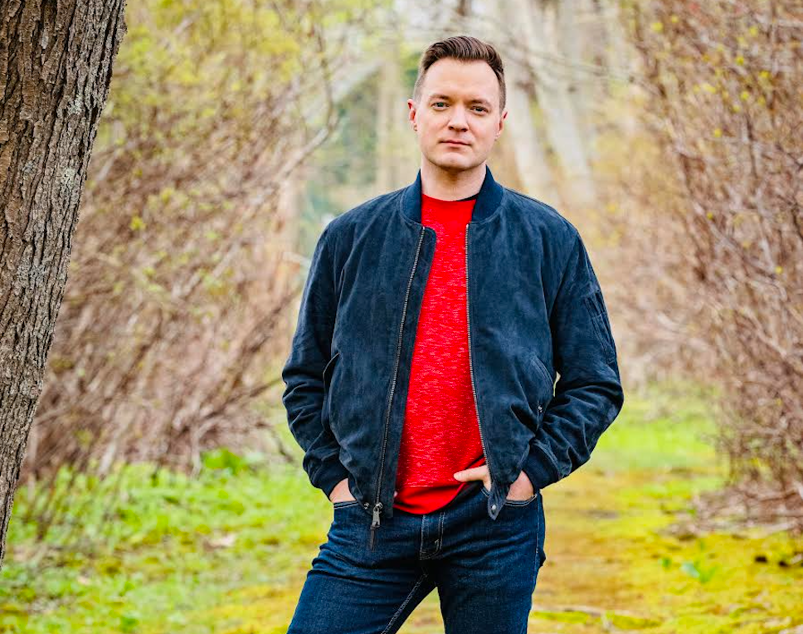
Like December for elves and Santa Claus, Halloween is the busiest time of the year for ghost hunters and paranormal investigators.
Even more so this year for out ghost hunter, Adam Berry, who in addition to the usual packed calendar of spooky events, has also released his first book, Goodbye Hello: Processing Grief and Understanding Death Through the Paranormal. The book is a mix of memoir and grief counseling, with Berry sharing bone-chilling tales of his encounters with the unexplained, while also teaching readers how to find comfort in death through the afterlife.
Goodbye Hello has a similar approach to Kindred Spirits, the popular reality series Berry and his best friend, Amy Bruni, have co-starred on for the past seven seasons, where they travel the country helping people with their haunted houses — and the losses they have suffered in their lives.
Berry is one of the few out ghost hunters in paranormal TV. He was first introduced to audiences back in 2010 when he won Ghost Hunters Academy, and then joined the cast of Syfy’s Ghost Hunters, before starring in Kindred Spirits with Bruni.
We recently spoke with Berry about his new book, living in Provincetown year-round, ghost hunting with Ginger Minj, and whether he has ever encountered any gay ghosts. Here’s what he had to say…
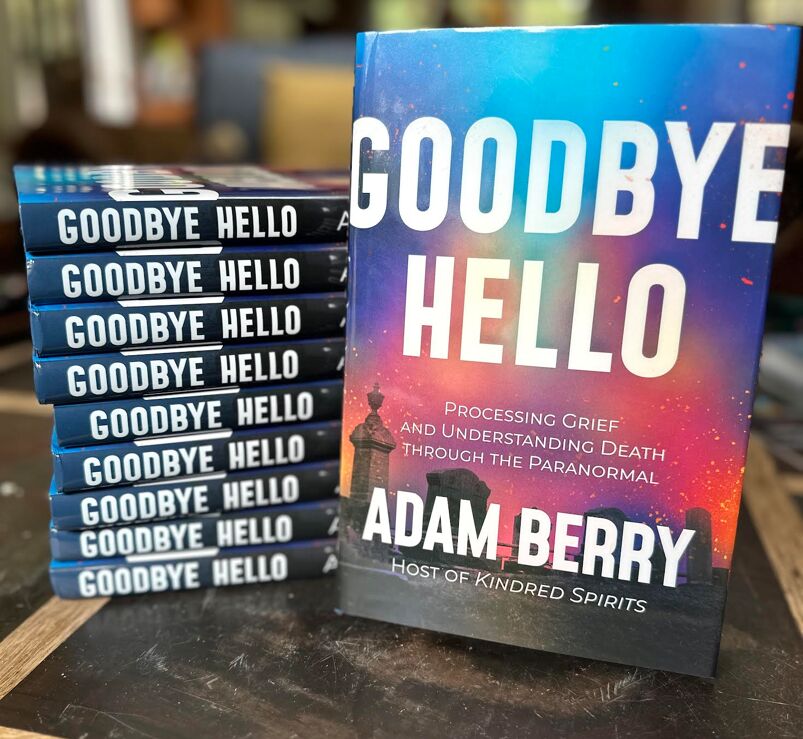
QUEERTY: You could have written a book filled with just ghost stories, and your paranormal encounters over the years, so why did you decide to go the route of grief and death?
BERRY: I personally love a good ghost story. I love investigating ghosts, and I love a good ghost book. Years ago, I had an experience with a lady at a paranormal convention who said, “I only have so long to live, how do I communicate with my loved ones [after I die]?” That, in a weird way, sparked the conversation in my brain, of what else can a paranormal book be, rather than just spooky stories? How can it help people? Because Amy [Bruni] and I have reached this point with Kindred Spirits, where it’s about how we can help both the living and the dead. How do we help with this thing that we do, rather than just going into investigate and have the experiences?
The book is along the same lines. I wanted to write something that I think would not only be entertaining but would be beneficial for those who might need a different outlook on their grief or some sort of different information on the afterlife that may help them on their journey specifically. I think the days of investigating ghosts for fun are still there, but they’re less important. It’s more about helping other people understand what might be out there after we pass away.
In the book, you write about growing up in Alabama. What was it like being a gay kid in Alabama?
Oh, what was it not like? I would say I was fortunate to grow up in Muscle Shoals, Alabama. It was the recording capital of the South before Nashville and Memphis. It has famed recording studios. The Alabama Music Hall of Fame is there, so it’s a very music-oriented town. We had people who wrote for the Backstreet Boys and NSYNC at the time living in town, and music was a big deal. So I grew up singing. I went to school for musical theater. It was easier because I would say, I want to be a singer, or I want to be an entertainer, and I can go out and have this outgoing personality, and people would be like, oh, that’s cool. Because that’s just the town that I lived in, they were used to it. Our band program in high school got more money than the football team.
What was not fun was the church on every corner. The buckle of the Bible belt, if you will. So I was very quiet. I kept it to myself a lot of the time. I told a few friends in my junior year of high school, who I could trust, and it was great. I left when I was 18, and moved to Boston to go to college. So I held my cards tight and kept my head down. Those who needed to know knew. My parents were great. They’re liberal, so they get it. My mother actually was introduced to my father by one of her gay friends named James, and that’s why my middle name is James.
What was it like being a gay ghost hunter back during your Ghost Hunters days?
I used to say it’s easier to come out of the closet being gay than telling people you’re into ghosts. When I was on Ghost Hunters, what’s interesting is the only time my sexuality was ever mentioned was in the Jimani Lounge Fire episode, where we investigated the UpStairs Lounge fire in New Orleans. And that episode was really tough. So when that aired, everyone was like, “You came out on TV…” I was like, no, I’ve been out. I’ve been out since I was a junior in high school, basically. But that was a big deal. And back then, I got more hate messages, and just people not understanding the situation. They were like, “Why did you have to talk about being gay on television? What do I tell my kids? Why does it even matter?” And when people would say those things, I would respond with, I’m the only one that could connect with them on their level. You never heard me talk about it on any other episode because it doesn’t come up. That’s not the thing that we talk about. We don’t go in and be like, “Hey, ghost, are you gay?” That’s not the question. In a weird way, it doesn’t actually matter, which should be the way in the world. But if we have factual information that the spirit was a lesbian, gay, bisexual, or part of the community, then we can use that to have a conversation.
I feel that paranormal conventions and events, draw people who feel different or feel like outcasts, who are maybe more open-minded. Do you find that to be true?
Yeah. I do events here in Provincetown, where I live. And I have people coming from all over the country who come here, and they may have wildly different political views, but then they come to Provincetown and they’re like, “This is a cool, really great town.” P-Town is beautiful, it’s gorgeous, there’s something about it. There’s a sense of magic here. I think it’s really great because then they can see the community and they’re like, “Oh, everyone’s cool. And they love each other.” Of course, they’re going to see an assless chap. They may laugh about it. It’s just very unique and different.
So what’s the most haunted place in P-Town?
Besides the Dick Dock? [laughs] I think that’s a really good question. Provincetown is, like I said, magical. I think in the winter, you are more prone to notice paranormal activity because the town gets quiet, and everything slows down a little bit. These old houses are vacant. It looks creepy. It’s like The Shining.
We’ve investigated the Universalist Unitarian Meeting House a few times, and that is very haunted, in my opinion. The basement was used as a morgue during the flu pandemic of 1918. We’ve contacted people who died during the flu pandemic in the basement there. We’ve seen shadow figures upstairs. A friend of mine heard a choir rehearsing when there wasn’t a choir there, so that’s intense.
The Martin House, what used to be the Martin House. It’s now a privately owned home. That’s haunted. They say the cook, one of the chefs, haunts that building. Christopher’s by the Bay is a guest house that is supposedly haunted. The cemetery has stories of what they call the black flash. Sometimes if you’re out in the cemetery, you’ll see this thing just zip across in front of you, and people are like, “It’s an animal, it’s a rabbit.” It’s black, it’s darker than dark, and it goes across in front of you. And I’ve seen it once. On New Year’s Eve, I was picking up a to-go order, and I cut through the cemetery. And something flew in front of my car, so much so that I slammed on my brakes because I thought I was going to hit it. It was this little black flash thing, which is so crazy.
Then you’ve got Helltown, the point way out at the end [of Cape Cod] where it’s a whaling community, and people say they see figures walking on the beach when no one is there, especially in the winter when no one would be out there. There’s a lot of history here, and I wish I could investigate more things in this town, but it’s hard to do that during the season because there are so many people out and about.
Drag is so big in P-Town. Have you ever talked about ghosts with a drag queen?
Yeah. Ginger Minj is one of my dear friends. She and I gab about ghosts all the time. We’ve investigated a little together. Funny enough, where she was staying was a house that our theater company had access to. She stayed there one whole summer, and she kept saying there was activity in the house. So I went over and we investigated to see if we could connect with the ghosts in the house. Delta Werk, also a friend of mine, loves ghosts. Pissi Myles loves the paranormal, she’s a spooky queen. So I think drag queens and ghosts go hand in hand.
Did anything happen during your investigation with Ginger?
Yeah, sort of. We made contact, I believe, with an older lady. After Ginger left, my friend stayed there for the winter and was doing some work on the house, and uncovered these old photos that were in the attic of this woman who lived there, and it was pictures of her in different parts of the house. She died while she lived in that house, so maybe it was her. It wasn’t scary. I eased Ginger’s fears because she knew it wasn’t going to harm her, or that the person wasn’t going to harm her, and she shouldn’t be scared of it. I love investigating with people who are very curious about it and maybe have not investigated before, because you never know what’s going to happen.
Have you come across any gay ghosts?
It’s hard to say because if we don’t know from factual information whether or not what their sexuality is, it doesn’t come up. The only other ghost that I’ve spoken with about their sexuality is Lizzie Borden because the rumor is she had a relationship with an actress who was living in her house, Maplecroft, which is what her house was called, where she moved after she was acquitted. She would have this acting troop over, and she would host these lavish parties. Lizzie Borden’s sister lived there at the time. Apparently, after one of the parties, something happened and Lizzie’s sister was so upset that she left the house, moved to Maine, and basically gave Lizzie the house. I think it was because she saw something to do with this actress who was living upstairs.
We found out when we were investigating there that you could not mention the murders in that house or Lizzie would stop talking. And so I brought up her relationship with the actress, and she also was like, “No, I’m not going to talk about that.” We don’t know if she really had a relationship with that woman, but it’s a rumor. So I had the opportunity to just bring it up and ask her about it.
Hulu has a new paranormal show, Living For the Dead, and there’s Michelle Belanger’s New Blood, which also has a queer cast. What are your thoughts on this new wave of queer ghost shows?
Yeah, I’m looking forward to the Hulu show. Queer voices in the paranormal are rare. When you watch paranormal television, it’s very masculine, it’s very spooky and dark. I think the perspective of the queer community in the paranormal really has always been there. I think we, as a community, are more connected to spiritual ideas and feelings. I think it’s because we’ve learned how to protect ourselves emotionally and spiritually. I think we support each other and we’re more open to each other. We’re open to new ideas and new feelings and thoughts. I believe our community is tapped into spiritual ideas a bit easier than other people. I’m excited to see what they do with their voices on these shows. I don’t know the premise, but I think it’s cool that if you are only focusing on queer ghosts, talking about the history, I think it’s very important. For instance, it would be great to see them go to Stonewall. We had a conversation about possibly doing a Kindred Spirits episode at Stonewall in New York because the bartenders have experienced activity, and they don’t know who it is. It’s not dangerous, per se, but it’s just very weird. But we didn’t get a chance to because we were filming in June, and everybody knows they’re busy in June.
You mentioned Kindred Spirits, so I have to ask, do you have any updates on a new season?
I can’t say anything. It’s weird right now because of the strikes. We’re still under contract, and we always hope for the best. We’ll know at some point soon, I would assume. It’s a weird time for television and streaming, and I’m glad to not be in the mix at the moment if that makes sense. The focus right now is the book, and I’m working on a podcast that hopefully will come out at some point soon. We keep pushing forward and doing things we love to do, and keeping it fresh.
I love the part in your book where you wrote about your friend Bart, who was diagnosed with AIDS back in 1990. Can you explain why you chose to include his story?
I’ve known Bart for 20 years. He was one of the first people I ever met in this town. I think it is very important that we learn from our history, especially those that are still with us. The stories he shared throughout the time I’ve known him are incredible. I wanted to include that specifically in the book because those who have paved the way for us, a lot of them are not here. For there to be someone who is still here, who can share their story and the experience of that time period, or what happened, is very important. It shows resiliency. It shows that our community is resilient.
It’s something I wanted to put in writing so that his story would not be lost. I think it’s important for us to learn from that, and he’s such an angel. I saw him the other day, he looks great. He’s still moving forward. But he has these stories that eventually are going to be lost if nobody tells them. I thought it was important to include him, not only because I think people can learn from his resiliency, and learn from what he has dealt with in his life, and what he’s still dealing with, but also to make sure that the history is in writing. So that people years from now, if they find this book, hopefully not in a $1 bin, and they get to that part, and they’re like, “Oh, that’s what that was like.” Because we don’t know what the future holds and we can’t forget our past.



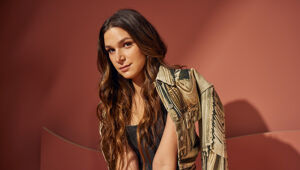
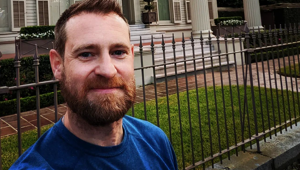
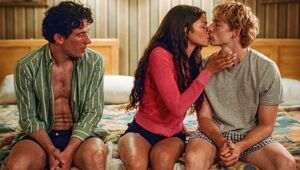
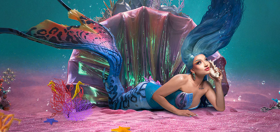

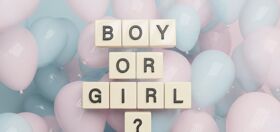
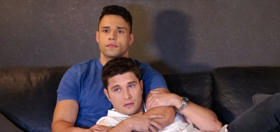
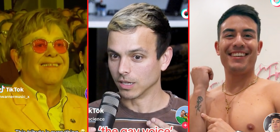
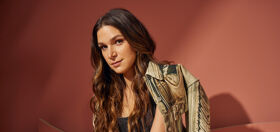


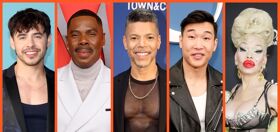
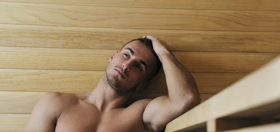

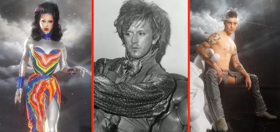
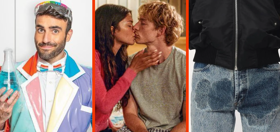
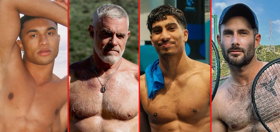
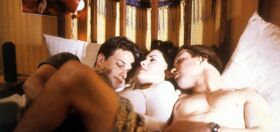
straightupgay
Ghost hunting? ugh.
Gurl please.